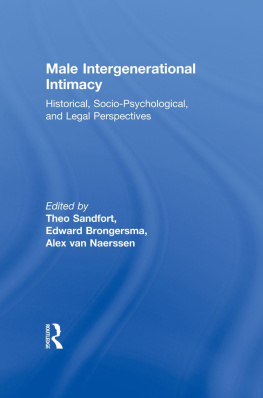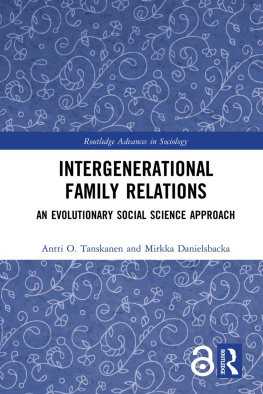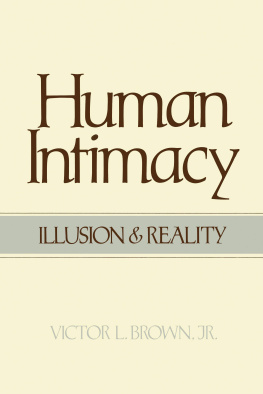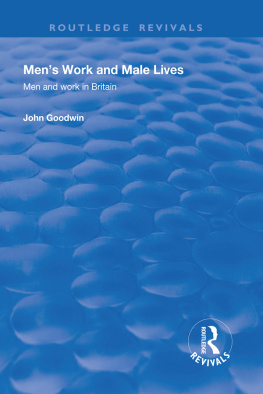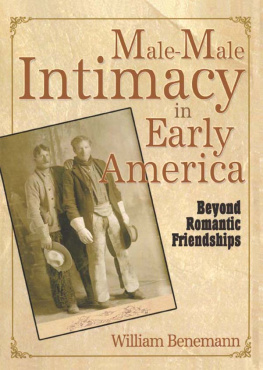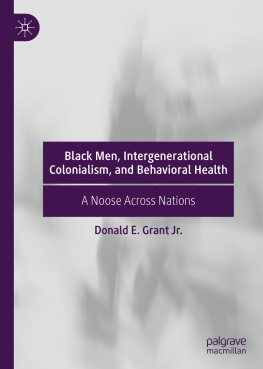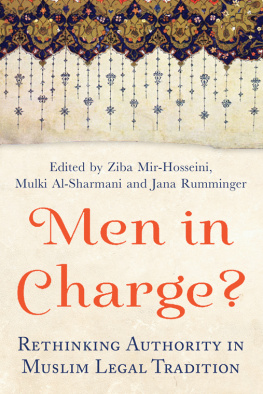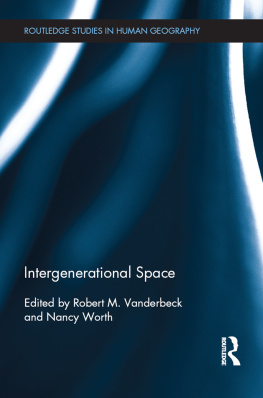First published by:
The Haworth Press, Inc. 10 Alice Street, Binghamton, NY 13904-1580
EUROSPAN/Haworth, 3 Henrietta Street, London WC2E 8LU England
This edition by Routledge:
Routledge
Taylor & Francis Group
270 Madison Avenue
New York, NY 10016
Routledge
Taylor & Francis Group
2 Park Square
Milton Park, Abingdon
Oxon OX14 4RN
Male Intergenerational Intimacy: Historical, Socio-Psychological, and Legal Perspectives has also been published as Journal of Homosexuality, Volume 20, Numbers 1/2 1990.
1991 by The Haworth Press, Inc. All rights reserved. No part of this work may be reproduced or utilized in any form or by any means, electronic or mechanical, including photocopying, microfilm and recording, or by any information storage and retrieval system, without permission in writing from the publisher. Permission does not extend for any services providing photocopies for sale in any way.
Library of Congress Cataloging-in-Publication Data
Male intergenerational intimacy: historical, socio-psychological, and legal perspectives / Theo Sandfort, Edward Brongersma, Alex van Naerssen, editors.
p. cm.
Has also been published as Journal of homosexuality, volume 20, numbers 1/2, 1990T.p. verso.
Includes bibliographical references.
ISBN 1-56024-000-8 (alk. paper)
1. Pedophilia. 2. Homosexuality, Male. I. Sandfort, Theo, 1953-. II. Brongersma, Edward, 1911-. III. Naerssen, A. X. van.
[DNLM: 1. Paraphilias. 2. Sex Offenses. Wl J0672H v. 20 no. 1/2 / WM 610 1613]
HQ71.I58 1990b
306.77dc20
DNLM/DLC
for Library of Congress
90-5287
CIP
ABOUT THE EDITORS
Dr. Theo Sandfort is a social psychologist and Co-Director of the AIDS research program of the Department of Gay and Lesbian Studies of the University of Utrecht. Dr. Sandfort has done research in the field of sexual development and pedophilia. He is the author of Boys and Their Contacts with Men, a study among 25 boys involved with sexual relationships with older men. Dr. Sandfort received his doctoral degree from the University of Utrecht.
Dr. Edward Brongersma is Director of the Brongersma Foundation which collects published literature and private documents relevant to the scientific study of child sexuality and pedophilia. He has written extensively on sexological topics, especially pornography and pedophilia. Dr. Brongersma studied law at the University of Amsterdam.
Dr. Alex van Naerssen, a psychologist and experienced counselor in the field of sexology, is Research Coordinator of the social sexology section of the Department of Clinical Psychology and Health at the University of Utrecht. Dr. van Naerssen has written articles on homosexuality, sado-masochism, pedophilia and other uncommon sexual desires.
Acknowledgement
This collection was supported in part by a grant from the Kalos Kagathos foundation and Mr. Bruce S. Hopping, its chairman.
Foreword: The Debate on Pedophilia
Gunter Schmidt, PhD
University of Hamburg
Dr. Gunter Schmidt is Professor of Sex Research, Abteilung fur Sexualforschung, der Psychiatrischen und Nervenklinik, University of Hamburg, Martinistrasse 52, D-2000 Hamburg 20, Federal Republic of Germany. Correspondence may be addressed to the author at the above address.
This article, originally in German, was translated by Jane Wiebel, PhD.
Pedophilia is one of the taboo topics in sex research. Sexologists carefully skirt and avoid the subject as much as possible; when they take it up they do so in conformist, moralizing, and faint-hearted tones. This attitude has a long tradition. In his immensely long and comprehensive work on homosexuality, Magnus Hirschfeld, who fought so indefatigably and courageously for the rights of homosexuals, only dedicates a couple of lines to pedophiles and then only uses standard phrases: pedophiles merely form a subgroup (Nebengruppe) of homosexuals who undoubtedly have the most unfortunate sexual leanings (Hirschfeld, 1917-1920, p. 213 and Hirschfeld 1920, p. 281). He does not say a word about the misery and persecution suffered by this subgroup, although he so clearly perceived and combated it on behalf of the maingroup.
Little has changed since then; there is still a tendency to draw the line at pedophilia and ostracize pedophiles, as the politics of the gay movement reveal. Solidarity only goes so far and stops where ones own interests and reputation might be at stake (Thorstad, 1990) This means that the subgroup is just as in Hirschfelds day left to the mercy and hypocrisy of society at large. For many sex researchers and gay activists, a decent homosexual starts at the age of consent laid down by the state. These age limits are far too high in most societies; they aim to protect young people from their own sexual wishes than from sexual exploitation.
This volume is to be welcomed as a courageous attempt to break with bad tradition. One wonders which other publication in our field would be bold enough to make such a move. Of course the taboo still makes itself felt here (one could hardly expect otherwise): the underlying tone of many of the contributions is defensive and cautious; occasionally one comes across the euphemism of intergenerational intimacy; pedophilia is often presented as a particularly ardent form of paternal love and pedophiles as selfless helpers, aiding the children to discover and enjoy their sexuality. One sometimes has the impression that pedophilia is allowed to be anything as long as it is not sexual, an attempt to deny that pedophilia, just like other forms of loving, is first and foremost a physical affair, involving lust, sensuality, passion, and desire. To suggest otherwise is, as Martin Dannecker remarked, a monstrous denial of the sexual wishes of pedophiles and nothing but apologetic kitsch (Dannecker, 1987, p. 79).
Speaking of pedophilia in the strict sense (i.e., sexual relationships between adults and prepubescent children in contrast to relationships between adults and adolescents), there are two particular aspects which deserve our special attention because they make pedophile relationships particularly risky: First, the crucial and incontrovertible fact that in such relationships the adult and the child involved are not on an equal footing and the adult always has the upper hand. Because of this power differential, it is an illusion to suppose or hope that such a relationship is or can turn into a loving partnership between equals (a state of affairs which is rare in partnerships of any kind). The danger of exploiting the partner in this case the child by ignoring its needs and wishes, i.e., childish needs and wishes, is particularly strong in pedophile relationships, even where no physical force or pressure is involved. Being in a position of authority and power does not inevitably result in exploitation, but it all too often does. Children are subject to much pressure, not only from pedophiles, as the evidence on parental interference and abuse shows. Since there are far more parents than pedophiles, the power exerted by parents is potentially greater, and the havoc caused to their childrens sexual development far more frequent, even where no sexual abuse is involved. All this, however, does not alter the fact that a pedophilic relationship can all too easily have a repressive effect on the child.
This becomes clearer when we turn to the second special aspect. In the 1930s, Sandor Ferenczi pointed out that there is a fundamental difference between an adults and a young childs sexual wishes, and that this difference becomes blurred in a sexual relationship between an adult and a child, at the childs expense (Ferenczi, 1972). Ferenczi describes the linguistic confusion between adult and child, the disparity between the childs tender erotic wishes and the adults passionate desires (Ferenczi, 1972, p. 312). Ferenczi maintains that children do not crave genital sex with adults and that if they submit to it, it is often to win the adults love and attention. Ferenczi warns, if during the phase when the children long for tender affection,
Next page
